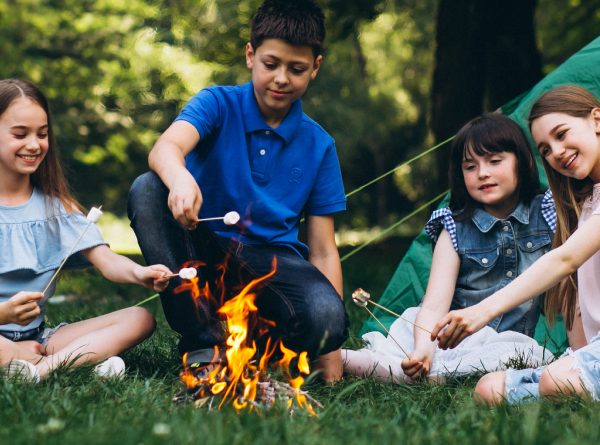Go camping with your kids. Because nature is full of things to see, hear, touch, and taste, kids of all ages will find a lot to enjoy on a camping trip. Camping can help them see and feel the world around them in a new way. Here are some tips to help you get started and make camping with kids a fun time for all.
Involve them in the planning process.
Ask your kids what they want to do on a family camping trip, even if they are young. Look at a map and talk about what you see. What do they want to do while they’re away? Even the youngest camper will have a great time if you know what to do for them.
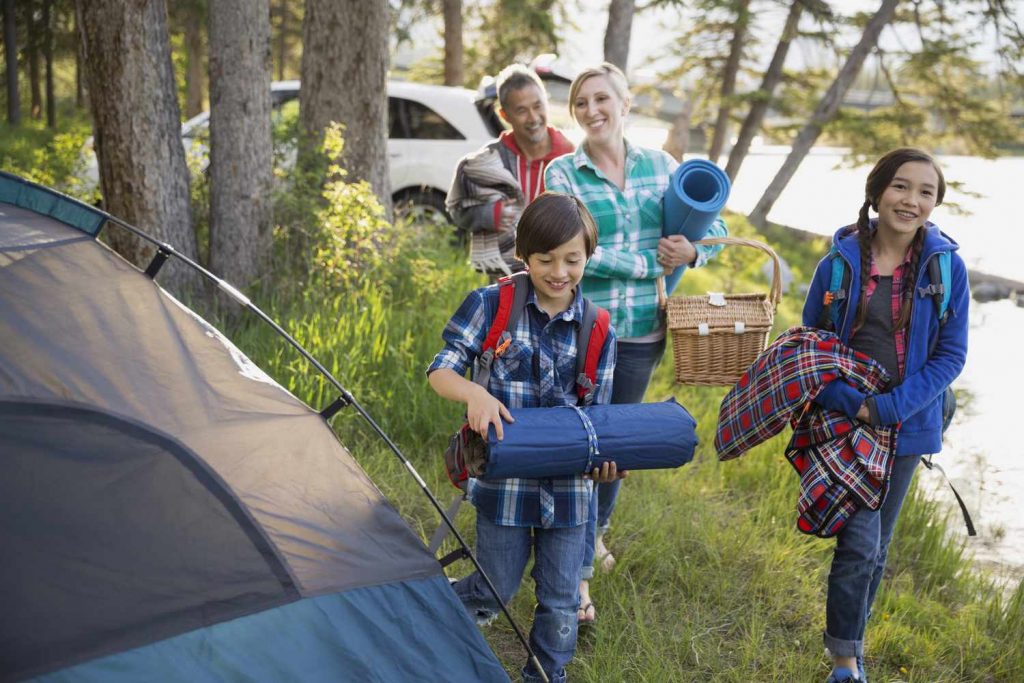
Practice Camping at Home
If your kids have never been outside, you could set up a tent in your backyard or even inside your house. Let them stay there and sleep there for a while, and they’ll get used to their new place to sleep. Try going to a nearby park with your family for the day. Spend half a day or more at a lake or park and see how your kids react.
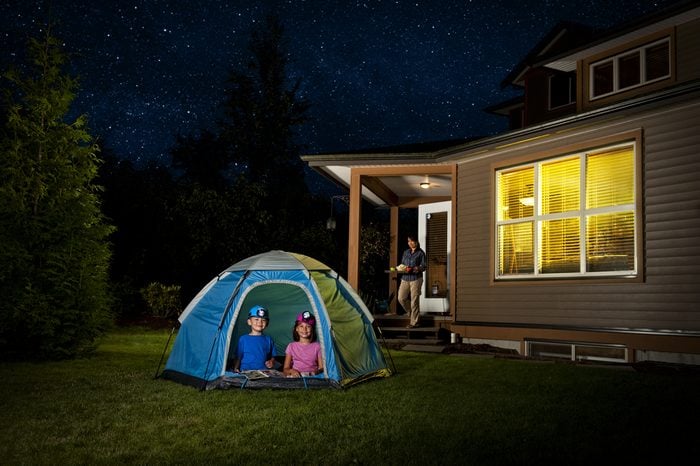
Don’t be afraid of trying and failing.
Rarely do people camp with their kids. But even so, your kids will learn something from it. If you’re worried about missing things and having to cut your camping trip short, check out a park closer to home. Or start with a short stay of just one night.
Let Kids Help Pack
Let the kids be in charge of packing their camping stuff (using a list you created). Check your child’s work before you leave the house. Pack your kids’ items in a duffel bag and tell them to always put them back in the duffel. This will help them stay organized. For easy identification, each child’s duffel should be a different color.
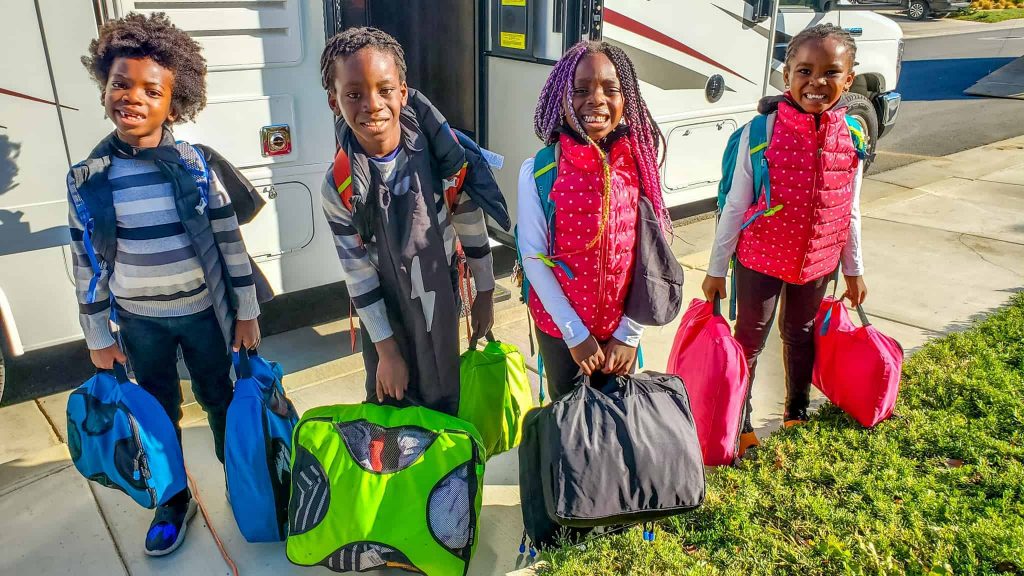
Leave the electronics at home.
Kids need breaks from phones, TVs, and other media as you do. They also need breaks from gadgets, games, and noise. The great outdoors is the best place to get away from everything. You might find this hard, but it will be worth it in the long run. They will learn to enjoy their time outside and connect with the natural world.
Pack Food Kids Like
Let your kids help you plan the menu for the trip to get them excited. Ask them what kind of food they like and what treats they want. Bring them food you know they will like. There is a better time to try a different type of food. Keep ready-to-eat snacks handy on the road and at the campsite.
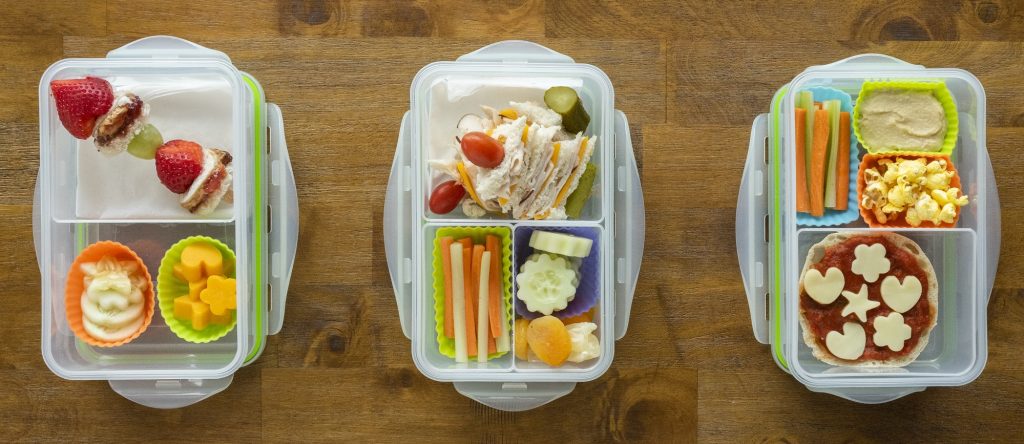
Practice Leaving No Trace
Go one step further and leave it in better shape than when you found it. If you want to camp responsibly, you should pick up any trash you see, whether it’s yours or not. It means something other than stacking rocks, breaking poles, or getting lost. It means living in nature in a way that shows respect.
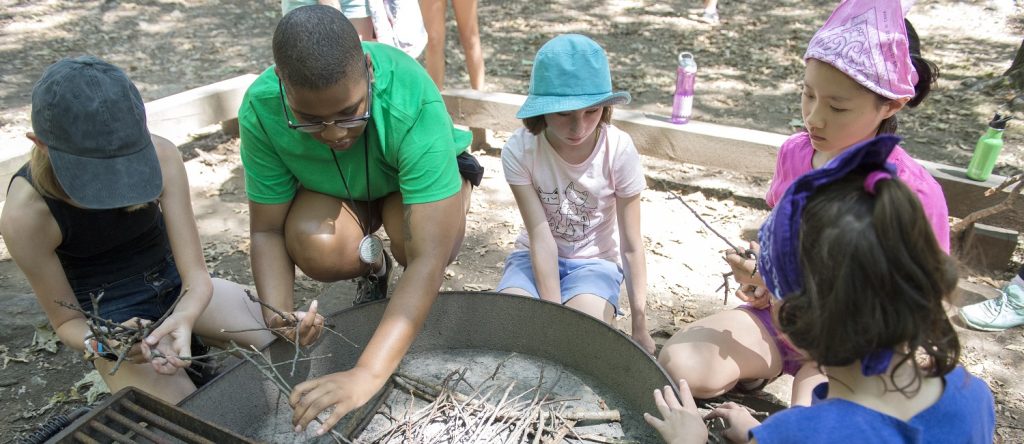
Find the Right Campsite for Camping
Choose the campground that has the right amenities for you and your family. Some campgrounds have playgrounds, ballfields, beach or swimming places, streams or rivers, and more. Some have picnic tables, bathrooms, and hot showers, while others don’t. If it’s your first time, start small. Choose more advanced campsites closer to home that has a lot of amenities. Make plans for a family trip. Ask the kids what they think you should do or see when you get there. Listen to what they say.
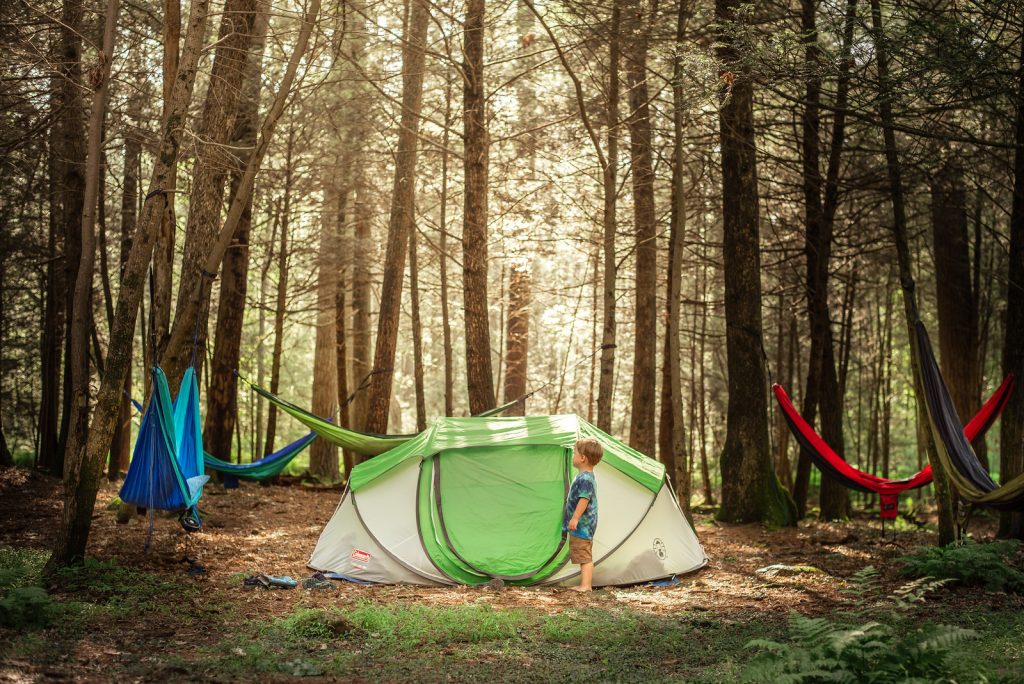
Pack a Favorite Toy
Bring one or two of your favorite games and toys, but try to limit the number of toys you bring. Leave room for a lot of free play outside. Children often find many more fun things to look at and play with at a campground than at home. You might be surprised by how long your child will spend digging in the sand or just looking around. Children will find ways to have fun outside on their own. If you bring toys, make sure they can be used outdoors, like a kite, a ball, a flying disc, a magnifying glass to look for bugs, or binoculars.
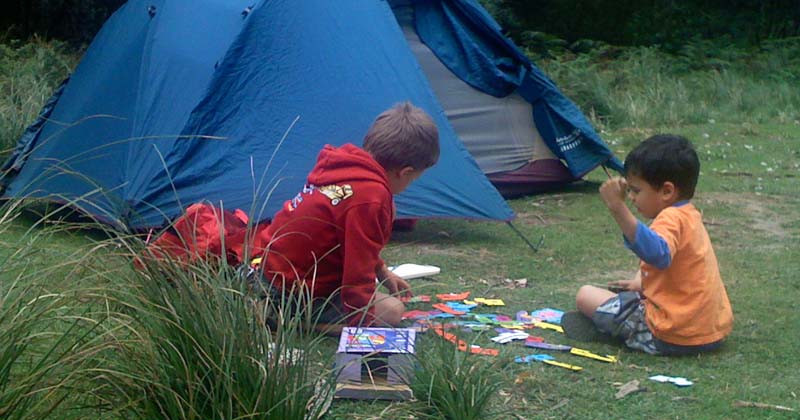
Think Safety
When you get to a campsite, talk with your kids about where they can go and what to do if they get lost. Where do you draw the line? Can they go past the parking lot and near the water? Are they allowed to go to the bathroom alone or wander around other people’s camps? Give the kids a whistle and show them how to use it so they can find you if they get lost. Make sure they have a flashlight or headlamp to use at night. Some things about camping could be dangerous.
Try something new
Use this chance to try something new together as a family. Sometimes this means trying kayaking, a beginner ropes course, or fishing. It’s a chance to try something new, get out of your comfort zone, and have fun while teaching your kids a valuable lesson.
Pack first-aid items
Bring a first-aid kit, sunscreen, bug spray, and a tool to get rid of ticks. Keeping these things close by and always in the same place is important if you want to stay calm when you need to. You know what you want, where it is, and what to do to get it. And remember that you’ll probably just be putting on sunscreen and bug spray, so don’t worry about this.
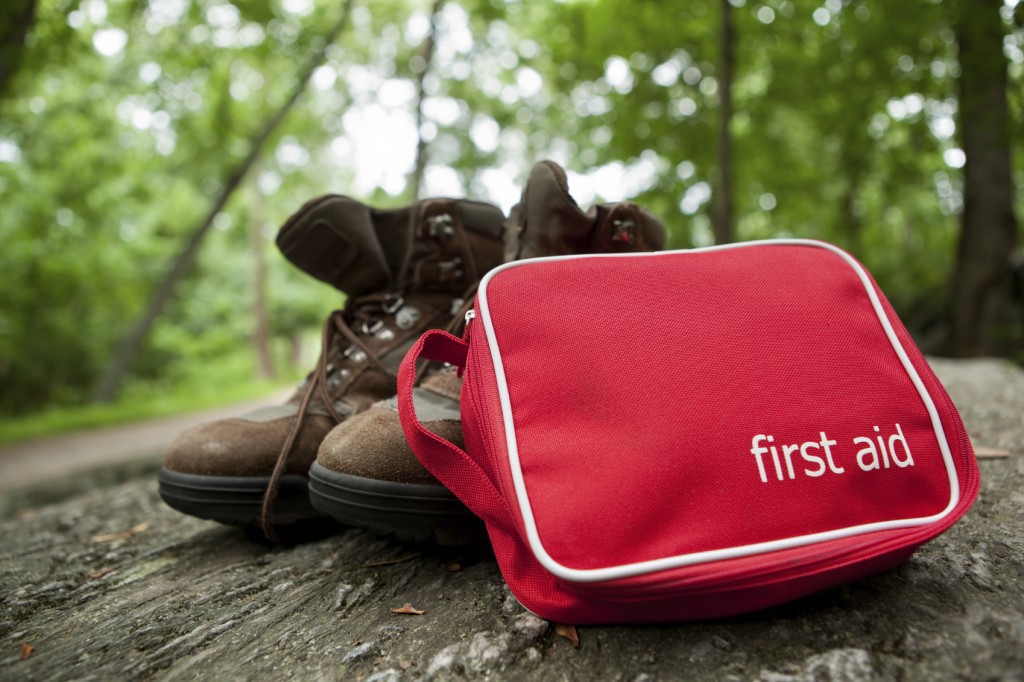
Involve Your Kids
Whether you want to set up the tents or make a quick meal, get your kids to help with as many camp chores as possible. Show them how things work. How to set up a tent, find a flat spot, and cook a meal in the wilderness. Give children meaningful tasks that are right for their age. Toddlers can help fill water bottles, roll sleeping bags, and pump up sleeping pads. One night, give older kids the job of washing the dishes or making dinner.
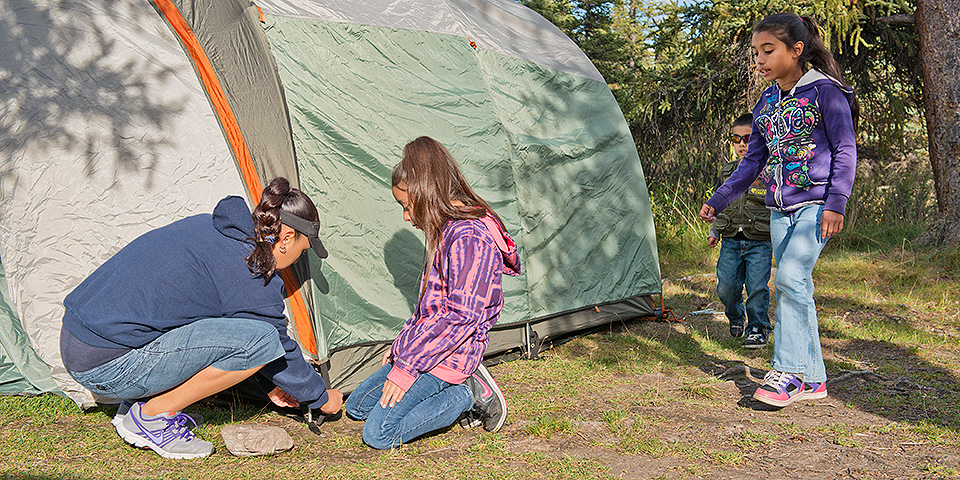
Have a Positive Attitude
Get pumped. Why should your kids be excited about camping with the family if you aren’t? When camping with kids, what is the first rule? You should expect to feel bad. There are new things everywhere. There may or may not be running water. Your kids will pick up on your positive, can-do attitude if you lead by example.
Give them responsibility
Camp work is different from everyday work. They were setting up the tent, making a fire, cooking, doing the dishes, and getting water to drink. All of these are jobs that kids can do to help out at a campsite. Give kids control over their experiences to help them build trust through working together.
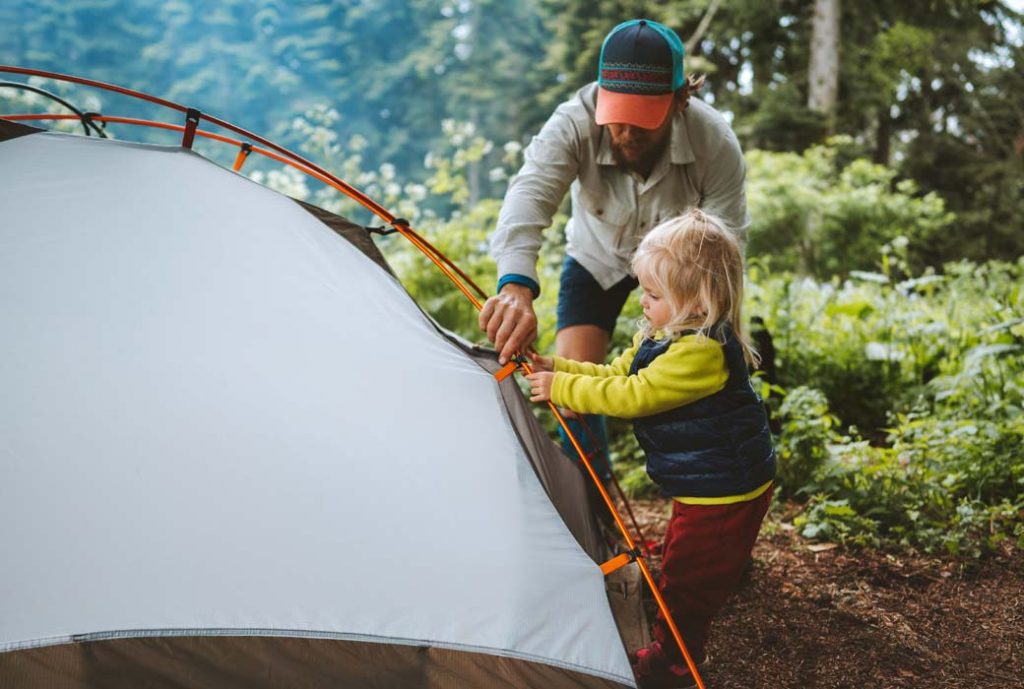
Allow risky play
Why does it matter your child’s risk, how old they are, or what skills they have? It teaches how to be flexible, have confidence, stay focused, deal with fears, and have self-control. Camping is a great place to let kids play in dangerous ways (while being watched). Climbing trees, discovering new things, and going as far as they could.
Start a night sky journal.
Bring a small telescope and a book about the night sky to show kids a part of our world they might not see otherwise. Before camping, give your kids a night sky journal to get them excited. Also popular with beginners are books about the weather and a notepad and pencil. Outside in the elements, you can learn by watching the temperature, cloud formations, and other weather-related things.
Find Teaching Moments
No matter how old your kids are, it’s never too early to learn the best things to do when they’re outside. Tell them how they can enjoy the environment and still do small things to help protect it. Teach them how to respect wildlife, throw away trash correctly, leave rocks, plants, and other items where they find them, and do other “leave no trace” things.
Anticipate Possible Challenges
You know your child best and can guess how they will act in different situations. Try to find solutions to problems before they happen. Is your child still learning to use the toilet or hates getting up in the middle of the night to use the bathroom? Bring a small portable toilet that you can set up outside your tent. Is your child an early riser? Bring a book or toy they can play with while you’re still sleeping in the morning. Does your teen sleep little and get up late? Remember to bring earplugs so your teen can sleep in while the rest of the family eats breakfast early.
Conclusion
Camping with kids takes them away from the usual things that keep them from spending time with their parents. Studies have shown that being in nature is good for your health, which makes us happy. You’ll burn calories and get a healthy dose of vitamin D from the extra activity. “Natural play” is suitable for kids in many ways.

